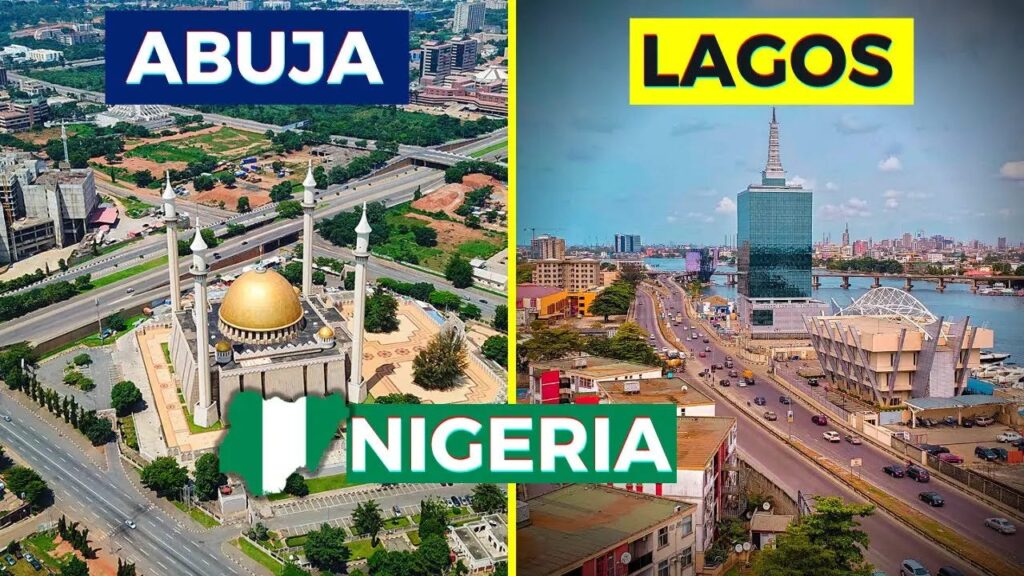Decoding Property Prices: A Deep Dive into Property Price Determinants in Lagos and Abuja’s Thriving Real Estate Markets

In Nigeria’s dynamic real estate landscape, property prices are shaped by a multitude of factors. These range from economic indicators to local market dynamics. This article examines some of the factors that determine property prices in the thriving real estate markets of Lagos and Abuja. By understanding these factors, investors, homebuyers, and industry stakeholders can make informed decisions while navigating Nigeria’s ever-evolving real estate market.
Economic Indicators:
- Exchange Rate Fluctuation: In recent time the exchange rate has not been favorable to the Naira when paired against the USD and other major currencies across the globe. Especially when the country’s foreign reserves are low. The exchange rate has a direct impact on the cost of building material which are mostly imported. This in turn affects the price of properties. Due to the exchange rate fluctuation, most property developers have had to review their properties upwards. Most property developers with ongoing development within the highbrow areas of Lagos and Abuja are currently pricing their properties in USD. They do this to hedge against exchange rate fluctuation.
- Economic Activities: Cities experiencing robust economic growth, such as Lagos and Abuja, often witness a steady influx of rural to urban migration. The population growth on a daily basis puts pressure on the limited supply of properties. This increases the demand for real estate, driving prices upwards.
- Inflation Rate: Inflationary pressures influence the cost of living and several other items as well as building material. This affects property prices. High inflation rates can erode purchasing power. This can lead to reduced affordability and dampened demand in the real estate market.
- Interest Rates: Monetary policy decisions, particularly changes in interest rates, have significant implications for property financing and investment. Lower interest rates stimulate demand for mortgages and real estate investments. This fuels upward pressure on property prices. The current interest rate in Nigeria is relatively high. It discourages borrowers from obtaining mortgages.
Market Dynamics:
- Supply and Demand Dynamics: The interplay between supply and demand dynamics is a fundamental determinant of property prices. In cities like Lagos and Abuja, population growth outpaces housing supply. Scarcity drives prices higher, particularly in desirable neighborhoods. High demands for properties also drives up the price of of land. This increases the overall cost of building. It makes real estate investment costly.
- Urbanization Trends: Rapid urbanization exert pressure on urban housing markets. Rural-to-urban migration drives up property prices. Lagos and Abuja are major economic hubs. They attract migrants looking for jobs, further increasing demand for housing.
- Infrastructure Development: Investments in infrastructure, such as transportation networks, utilities, and amenities, can significantly impact property prices. Projects like road expansions, rail networks, and commercial developments enhance accessibility and livability. This drives appreciation in property values.
Policy and Regulatory Framework:
- Land Use Regulations: Land use regulations, zoning laws, and development restrictions influence property development and pricing. In cities like Lagos and Abuja, where land scarcity is a challenge, regulatory frameworks shape the supply of land for residential, commercial, and mixed-use developments.
- Taxation Policies: Taxation policies, including property taxes and capital gains taxes, affect the cost of property ownership and investment returns. Changes in tax rates and incentives can impact investor behavior and property market dynamics.
- Government Initiatives: Government interventions, such as affordable housing schemes, mortgage finance programs, and urban renewal projects, play a pivotal role in shaping property prices. Policies aimed at increasing homeownership affordability and addressing housing deficits can impact market equilibrium.
Local Market Sentiment:
- Investor Confidence: Market sentiment and investor confidence influence buying and selling behaviors in the real estate market. Positive economic outlooks, political stability, and perceived investment opportunities can bolster demand and drive property prices upwards.
- Neighborhood Factors: Property prices vary across neighborhoods based on factors such as location, accessibility, amenities, and perceived desirability. Prime locations in Lagos, such as Victoria Island and Ikoyi, command premium prices due to their proximity to business districts and upscale amenities.
- Market Speculation: Speculative activities and investor behavior can contribute to price volatility in the real estate market. Fluctuations in demand, driven by speculation or market sentiment, can lead to boom-and-bust cycles and price bubbles if not tempered by underlying fundamentals. External factors, such as geopolitical stability, currency fluctuations, and global economic trends, can impact investor sentiment and market dynamics. It is essential to monitor external risks. Adapting to changing conditions is also essential for mitigating volatility in the real estate market.
Conclusion:
Property prices in Nigeria’s real estate market are influenced by a complex interplay of economic, market, regulatory, and sentiment factors. In cities like Lagos and Abuja, urbanization, economic growth, and demographic trends converge. Stakeholders must understand these influencers to navigate the market effectively. By monitoring key indicators, analyzing market dynamics, and staying attuned to local nuances, investors, developers, and homebuyers can make informed decisions and capitalize on opportunities in Nigeria’s dynamic real estate landscape.
